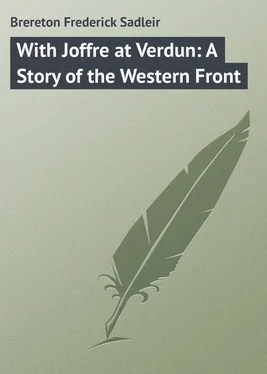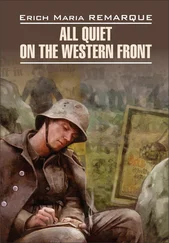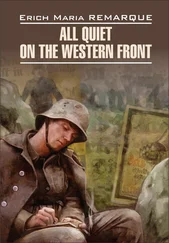Frederick Brereton - With Joffre at Verdun - A Story of the Western Front
Здесь есть возможность читать онлайн «Frederick Brereton - With Joffre at Verdun - A Story of the Western Front» — ознакомительный отрывок электронной книги совершенно бесплатно, а после прочтения отрывка купить полную версию. В некоторых случаях можно слушать аудио, скачать через торрент в формате fb2 и присутствует краткое содержание. Жанр: foreign_prose, на английском языке. Описание произведения, (предисловие) а так же отзывы посетителей доступны на портале библиотеки ЛибКат.
- Название:With Joffre at Verdun: A Story of the Western Front
- Автор:
- Жанр:
- Год:неизвестен
- ISBN:нет данных
- Рейтинг книги:3 / 5. Голосов: 1
-
Избранное:Добавить в избранное
- Отзывы:
-
Ваша оценка:
- 60
- 1
- 2
- 3
- 4
- 5
With Joffre at Verdun: A Story of the Western Front: краткое содержание, описание и аннотация
Предлагаем к чтению аннотацию, описание, краткое содержание или предисловие (зависит от того, что написал сам автор книги «With Joffre at Verdun: A Story of the Western Front»). Если вы не нашли необходимую информацию о книге — напишите в комментариях, мы постараемся отыскать её.
With Joffre at Verdun: A Story of the Western Front — читать онлайн ознакомительный отрывок
Ниже представлен текст книги, разбитый по страницам. Система сохранения места последней прочитанной страницы, позволяет с удобством читать онлайн бесплатно книгу «With Joffre at Verdun: A Story of the Western Front», без необходимости каждый раз заново искать на чём Вы остановились. Поставьте закладку, и сможете в любой момент перейти на страницу, на которой закончили чтение.
Интервал:
Закладка:
Gaining a road which ran beside the railway, and from which a track led up to the farm where the lights twinkled, Henri proceeded at a rapid rate till he was within a few yards of the residence, when he made a cautious circle of it and gathered the information that one of the front rooms was illuminated, while at the back of the house there was but a feeble glimmer, and from that front room came, as he listened, the sounds of music – the notes of an organ and the deep voice of a man singing.
"Fortunate," he told himself, "for it'll drown any sounds that I may make. First thing will be to investigate the back of the house, where there's that glimmer. I shouldn't wonder if it was the kitchen."
Stealing round towards the back of the house, and passing through a wicket-gate which gave entrance to the farm-yard, he tiptoed across the cobbles of the latter, and was brought up sharply by cannoning into a barrel, which fell over with a crash. Instantly Henri leapt against the wall and crouched in the deep shadow, fearful lest the noise should have alarmed the inmates, or, worse still, should have set some watch-dog barking; but no noise followed to tell him that his presence was detected, while, as if to give him greater assurance, the notes of the organ and that deep, manly voice came even louder to his ears, proving that those within the house had heard nothing.
"It's a chance in a hundred," he told himself. "Here's the back door – shut and locked – eh? No, not locked – opens easily, and – and – ah! – the twinkling light is caused by a fire – a kitchen, right enough – that looks like food; now where is it?"
Entering the place without hesitation, he groped about till his fingers lit upon a dresser, and then upon a candle, which he lit by bending over the flames of the fire and igniting the wick. Then he made a thorough search of the place, only to discover that there was not a scrap of food present. However, there was a door leading out of the back of the kitchen into a small outhouse, and there he found a larder well stocked with provisions.
"All's fair in love and war," he said, as he looked about him. "A sausage – eh, that's something – and a round of beef, which is something better. Here's a loaf of bread, and, 'pon my word, a basket and some bottles of beer – what more does a fellow want?"
To appropriate the articles, to pop them into the basket, to blow out the candle, and to march from the kitchen were the work of a few moments. He slunk away from the farm, out through the wicket-gate, along the path which he had pursued, back towards the river, and then gave vent to a whistle. There came at once an answering whistle, and, getting his direction from the sound, Henri soon found himself by his companions.
"W – w – what have you got?" said Jules, his teeth chattering, his words broken and shredded by the cold from which he was suffering. Even the stalwart and healthy Stuart was no better.
"Y – y – yes?" he demanded, though there was no fire in his question, and but little eagerness. "W – w – what the d – d – dickens have you got in that b – b – basket? Lor! W – w – what a weight it is, and, by all the saints! b – b – beer bottles – well I'm b – b – b – blest!"
"You're beastly cold at any rate," said Henri; "too cold by far to enjoy cold bottled beer, cold beef, and cold sausage, while I'm beautifully warm, thanks to the exercise I've been taking. Look here, you fellows, it's no use our attempting to stay out here and eat our rations, for we'll catch our death of cold; and no wonder, seeing that it often freezes at night in this season. I'll tell you what we'll do. There's not a dog in that farm which I have just visited, and there are outhouses in plenty. Why not make our way to one of them and make a bed in some straw or hay if possible."
In any case active exercise was what was required by Jules and Stuart, for after their immersion in the river, and the thorough soaking they had received, lying still in the grass at the side of the road waiting for Henri's return – a cold and chilly business at any time – had become doubly cold. They were chilled to the bone now, their teeth chattering so hard that it was with difficulty they could speak, while a natural appetite – an appetite increased by their enforced abstention from food during a whole day, their rapid crossing of the country since they had broken out of Ruhleben, and their movements on this evening – was dulled by the temperature to which their bodies had been lowered. "B – b – beastly cold," Stuart admitted, and he was the very last individual to grumble as a general rule. "S – s – sound c – c – common sense, Henri. Let's get off to these b – buildings and search for some hay. Somehow or other we must get some warmth into our bodies."
He stood in the darkness before the other two, swinging his arms with vigour and trying to beat some sort of circulation into his frigid fingers; then, picking up the basket as if to increase the warmth of his body by added effort, he went off beside Henri, Jules marching on the farther side, his teeth still chattering, utterly cold and miserable. However, the sharp walk to the farm made them feel warmer, so that they had almost stopped shivering by the time they reached the yard. From outside the window of that front room, which was still illuminated, they listened to the sound of the notes of the organ which was still being played, and to the music of that deep bass voice still warbling in the interior.
"Jolly nice it sounds too," said Stuart, "and I reckon that anyone – even a German – ought to be able to sing when in a comfortable room, probably with a nice blazing fire. A nice fire, Henri – a nice fire. George! wouldn't that be ripping!"
Henri led them on round the end of the building, through the wicket-gate into the yard, and halted again outside the kitchen door. If only they had dared enter in a body, if only they could have found a welcome in that warm place, how great a relief it would have been, what comfort it would have brought to them all, and what a pleasure it would have been after the life they had lived in Ruhleben. But if they had found little comfort in the camp where they had been interned, if they had found few or no friends amongst their guards and amongst the staff appointed to watch over them, they were just as little likely to discover friends outside the camp in any portion of Germany. Indeed, every part of the land of the Kaiser was inhabited by a people antagonistic to the last degree to an enemy amongst them. In those early days, when Henri and Jules had first been captured, the arrogance of their captors, the hatred of the mob, and the unbridled passions of the Kaiser's people might easily have resulted in those two hapless prisoners being torn to pieces. But for the police they would probably have been slain in the streets of Berlin, for, thanks to them, all but minor injury was forbidden, while insults, blows if possible, and curses were hurled at them. But that was in August, 1914, at the commencement of the war – a war for which Germany had prepared during forty-two years of peace, a war anticipated and waited eagerly for by multitudes of Germans, and one which they believed was to make them the ruling nation of the world. That was in August, 1914, as we have said, and now see the change. Months had gone by since Germany, prepared to the last detail – with an army in full readiness and trained for its task, and with a population trained also for helpful service to the army – had thrown herself upon Russia and France and Belgium, had found them unprepared, had beaten them back, had decimated the country of King Albert of the Belgians, had made Louvain a shambles, and had set the streets of Dinant running with the blood of her victims. Yet she had not triumphed. She had captured enemy country, to be sure, she had driven France and the British ally – which had so quickly come to the side of the French – back towards the sea-coast, and she had hurled Russia out of East Prussia, and, after the sturdy advance of the Grand Duke Nicholas into Galicia and the fall of the fortress of Przemysl, had fallen upon him with mighty force, had discovered the Russians short of ammunition and of artillery, and had driven the forces of the Tsar back towards Warsaw and other cities. Yes, Germany had gained much territory, and had lost many, many lives. Yet, see what now faced her; not victory, but embarrassment on every side: a trench-line running from north to south in Russia – a trench-line against which her weakened battalions had battered in vain, a line held by the forces of the Tsar, even though short of ammunition, so securely that Germany could not advance; and on the west another trench-line, which, after the battle of the Marne, had been extended westward and northward to the sea-coast and blocked the advance of the Kaiser's forces just as securely as did those lines in Russia.
Читать дальшеИнтервал:
Закладка:
Похожие книги на «With Joffre at Verdun: A Story of the Western Front»
Представляем Вашему вниманию похожие книги на «With Joffre at Verdun: A Story of the Western Front» списком для выбора. Мы отобрали схожую по названию и смыслу литературу в надежде предоставить читателям больше вариантов отыскать новые, интересные, ещё непрочитанные произведения.
Обсуждение, отзывы о книге «With Joffre at Verdun: A Story of the Western Front» и просто собственные мнения читателей. Оставьте ваши комментарии, напишите, что Вы думаете о произведении, его смысле или главных героях. Укажите что конкретно понравилось, а что нет, и почему Вы так считаете.












